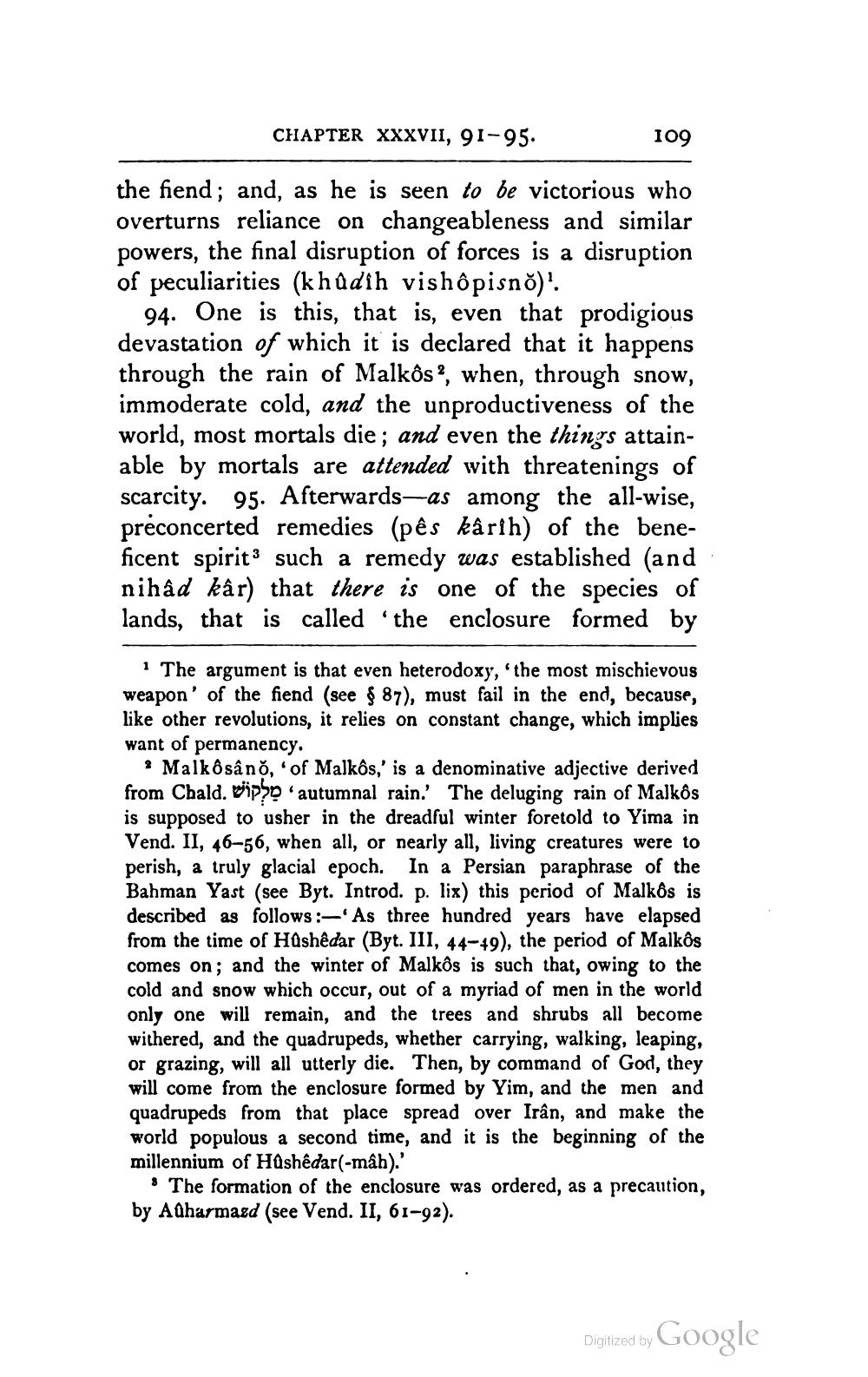________________
CHAPTER XXXVII, 91-95.
109
the fiend; and, as he is seen to be victorious who overturns reliance on changeableness and similar powers, the final disruption of forces is a disruption of peculiarities (k hûdih vishôpisno)'.
94. One is this, that is, even that prodigious devastation of which it is declared that it happens through the rain of Malkos?, when, through snow, immoderate cold, and the unproductiveness of the world, most mortals die; and even the things attainable by mortals are attended with threatenings of scarcity. 95. Afterwards-as among the all-wise, preconcerted remedies (pês kârih) of the beneficent spirits such a remedy was established and nihâd kâr) that there is one of the species of lands, that is called the enclosure formed by
1 The argument is that even heterodoxy, 'the most mischievous weapon' of the fiend (see $ 87), must fail in the end, because, like other revolutions, it relies on constant change, which implies want of permanency.
? Malkô sână, of Malkôs,' is a denominative adjective derived from Chald. wipo autumnal rain.' The deluging rain of Malkos is supposed to usher in the dreadful winter foretold to Yima in Vend. II, 46-56, when all, or nearly all, living creatures were to perish, a truly glacial epoch. In a Persian paraphrase of the Bahman Yast (see Byt. Introd. p. lix) this period of Malkos is described as follows:-As three hundred years have elapsed from the time of Hushedar (Byt. III, 44-49), the period of Malkos comes on; and the winter of Malkos is such that, owing to the cold and snow which occur, out of a myriad of men in the world only one will remain, and the trees and shrubs all become withered, and the quadrupeds, whether carrying, walking, leaping, or grazing, will all utterly die. Then, by command of God, they will come from the enclosure formed by Yim, and the men and quadrupeds from that place spread over Irân, and make the world populous a second time, and it is the beginning of the millennium of Hashedar(-mah).
. The formation of the enclosure was ordered, as a precaution, by Adharmazd (see Vend. II, 61-92).
Digitized by Google




